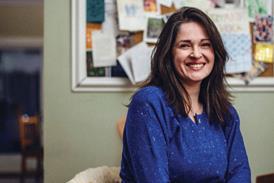Rob Parsons: Do you dare to be vulnerable?
By Rob Parsons2014-02-20T00:00:00

Somebody once said that with regard to our children’s lives, ‘The days are long, but the years are short.’ That has certainly been true in my experience, but as we celebrate our 25th anniversary at Care for the Family I believe it is also true in respect of those years of ministry.
More from Home
-
 Archive content
Archive contentVicky Walker
2021-04-01T00:00:00Z
Vicky Walker is a writer and speaker, among other things. She writes about life, arts and culture, faith, and awkward moments in the form of books, articles, stories, and more, and she tweets a lot.
-
Archive content
Tom Holland
2021-04-01T00:00:00Z
Tom Holland is an award-winning historian, biographer and broadcaster. He is the author of a number of books, including most recently, Dominion: The making of the Western Mind (Little, Brown). He has written and presented a number of TV documentaries, for the BBC and Channel 4,on subjects ranging from ISIS ...
-
Archive content
Tola Mbakwe
2021-04-01T00:00:00Z
Tola Mbakwe is a multimedia journalist for Premier.
- Issues
- Topics A-Z
- Writers A-Z
- © 2025 Premier Christianity
Site powered by Webvision Cloud

























